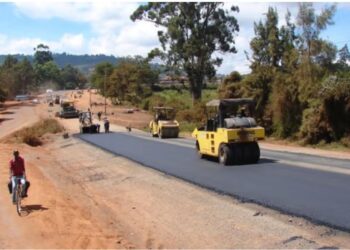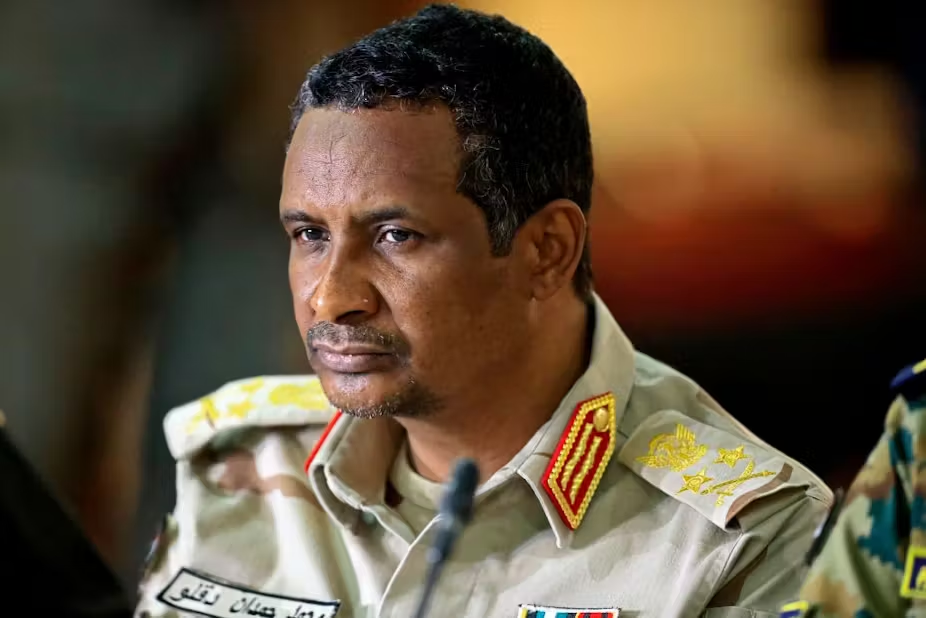By SUDAN TRIBUNE
March 4, 2024 (PORT SUDAN) – Malik Agar, the Deputy Chairman of the Transitional Sovereign Council in Sudan, on Sunday, met with South African President Cyril Ramaphosa to provide updates on the ongoing conflict in Sudan and discuss potential strategies to bring an end to the war.
During his working visit to Pretoria, Agar engaged in discussions with various officials from the government, the ruling Congress Party, and former President Thabo Mbeki. The purpose of these meetings was to exchange views on ways to end the conflict, brief the South African leadership about the root causes of the conflict and correct misconceptions following a meeting with the leader of the Rapid Support Forces (RSF) with President Ramaphosa on January 4th.
In a statement released in Port Sudan, the Sovereign Council of Sudan reported that Agar “Discussed the current war in Sudan, its impact on the country’s political and humanitarian situation, and clarified any misunderstandings surrounding the conflict. He emphasized that the war, initiated by the RSF, was not self-inflicted but rather imposed on Sudan by external forces with political, economic, and military motivations. Additionally, Agar presented the Sudanese government’s proposed roadmap for resolving the crisis and provided the president with a copy”.
The statement also mentioned that Agar criticized the calls from IGAD, the African Union, and other regional and international organizations. He argued that their statements failed to consider the potential for negative consequences and disrespected the Sudanese people by treating their “national army as equivalent to mercenaries”.
Separately, Ambassador Hussein Awad, Undersecretary of the Ministry of Foreign Affairs, stated that the discussions aimed to clarify the reasons behind the rebellion by the “RSF militia” and correct any misunderstandings surrounding the conflict. He expressed optimism due to the promised positive intervention from South African President Cyril Ramaphosa to help resolve the crisis.
Separately, Ambassador Hussein Awad, Undersecretary of the Ministry of Foreign Affairs, stated that the meeting discussed the reasons behind the rebellion by the “RSF militia” and cleared up some mischaracterizations about the war. He also mentioned that South African President Cyril Ramaphosa had pledged his active support in resolving the crisis.
The Rapid Support Forces (RSF) accuse the Sudanese army of initiating the war, claiming it was instigated by Islamists within the government. They also claim to support democracy and a secular state. In contrast, the military maintains that the conflict was started by the RSF leader, acting in collaboration with a regional country seeking control of Sudan’s maritime border and agricultural land.
According to the South African presidency, the purpose of the meeting was to brief President Ramaphosa on the progress towards peace in Sudan.
President Ramaphosa expressed South Africa’s support for dialogue between the warring parties and reiterated the call for an immediate ceasefire to alleviate the suffering of the Sudanese people, especially women and children, added the presidency.
President Ramaphosa emphasized the importance of a Sudanese-led solution to the crisis, free from external interference. He also promised to review the proposed peace roadmap and offer feedback, said Ambassador Awad, on another side.
Both leaders agreed to establish a joint mechanism to strengthen bilateral relations between South Africa and Sudan and implement the agreements reached during the meeting.
Additionally, The South African presidency stressed that President Ramaphosa looks forward to meeting with General Abdel Fattah al-Burhan, Chairman of the Transitional Sovereign Council.
(ST)







Discussion about this post